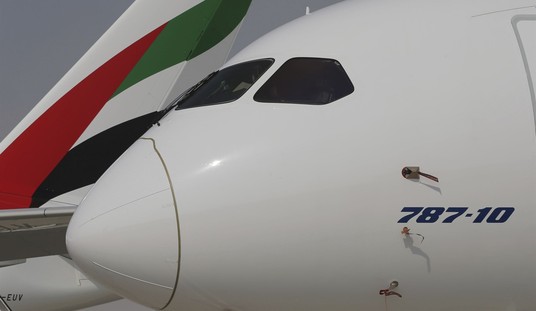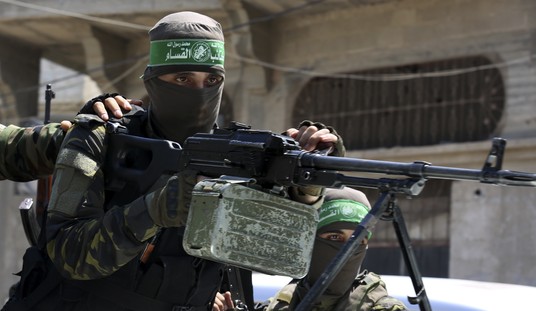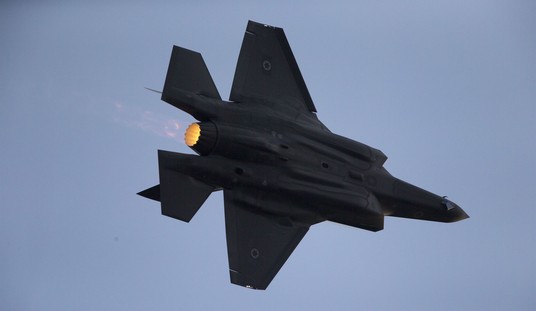Something both positive and revealing has just happened, and while it undermines one prediction of mine, it reinforces another. I’m delighted to see it.
I predicted that — since Egypt’s ruling Muslim Brotherhood in Egypt is a radical, Islamist group that wants to wipe Israel off the map, and since the ruling Hamas group in the Gaza Strip is part of the Muslim Brotherhood and is a radical Islamist group and wants to wipe Israel off the map — the Egyptian regime would cooperate with Hamas in fomenting terrorism against Israel. Also, that the Egyptian government would facilitate the flow of arms, money, and terrorists to the Gaza Strip for that purpose.
In fact, it has now become clear that the Brotherhood regime is stopping weapons and other things from entering the Gaza Strip. (As did its predecessor, the Mubarak regime.)
But why — given that my above chain of reasoning is true — is this happening?
The answer lies in another point I’ve made: many revolutionary Islamists are overconfident. This is partly due to a weak United States; partly due to their ideology that puts the deity, literally, on their side; and partly because of the big gains they are making throughout the region, and even the world.
These groups also bicker and even fight among themselves, most notably but not exclusively due to Sunni-Shia conflicts. So radical Islamist groups overreach, and thus suffer self-inflicted defeats.
This is what’s happening with Hamas.
The Muslim Brotherhood’s reasons are not benign. It seeks to consolidate control over a highly populated country and fundamentally transform it into a Sharia state under the Brotherhood’s perpetual rule. Hamas, however, by its nature, cannot accept Islamism in one country (to paraphrase Stalin, see end note). Hamas isn’t interested in building up a Sharia state in the Gaza Strip as its main goal because it seeks to conquer Israel and the West Bank.
One reason why the Brotherhood is stopping more aid or encouragement to Hamas is that the Egyptian regime doesn’t want a war — or even a high level of conflict — right now. A second reason is simply that Hamas has become entangled with smaller radical Islamist groups that are waging armed struggle against Egypt and seek to overthrow the Egyptian government and also to stage (without Egyptian permission) attacks against Israel across the Egypt-Israel border.
(Here’s the key statement from Issam al-Haddad, a senior Brotherhood official and a presidential advisor on foreign policy, that the flow of weapons to Hamas — and then back to the Sinai terrorists — will undermine stability in the Sinai Peninsula.)
Another factor cited is the need to fulfill Egypt’s obligation under the ceasefire agreement it helped broker between Israel and Hamas. U.S. pressure to keep this pledge was an incentive. This is to the credit of the Obama administration. (Of course, the Brotherhood is compliant because that helps it gobble up Egypt faster and easier, not to mention Western financial subsidies.)
Yet one wonders how cooperative the regime would have been if Hamas had not antagonized it by doing more to destabilize Egypt than it did Israel. I’m not saying Hamas did this intentionally, but merely that the small, even more radical groups it uses as fronts to strike against Israel also do other things.
And one further wonders what would happen if Hamas clamped down on its junior partners and protected Egypt from Gaza-based destabilization.
Whatever the balance of reasons, this greatly reduces the threat to Israel from Hamas for the coming months, or even years.
At the same time, the Syrian civil war and the growing hatred by the rebels against Hizballah, which supports the dictatorship, are also undermining Israel’s main enemy to the north.
With Iran still not having nuclear weapons, that means Israel’s security situation is in excellent shape.
But one must also note that things could change in the future, especially with the Brotherhood confident once it has Egypt, the Gaza Strip, and Syria. Remember that the nationalist regime went through a parallel cycle. Gamal Abdel Nasser’s movement seized control over Egypt in 1952, and took 15 years to get around to seeking confrontation with Israel, though within four years such a confrontation seemed possible.
For the time being, however, the situation looks better.
Note: The phrase “Communism in one country” meant that having Communism in one country–the Soviet Union–was enough for Communists and they would not try to spread revolution further. Communsts were supposed to reject this idea. The meaning here is that Hamas would be happy enough to run the Gaza Strip that it wouldn’t be aggressive or subversive to spread its rule further. I’m saying that isn’t true. The same applies for the Muslim Brotherhood generally. How much patience or risk-taking they employ is another matter.








Join the conversation as a VIP Member